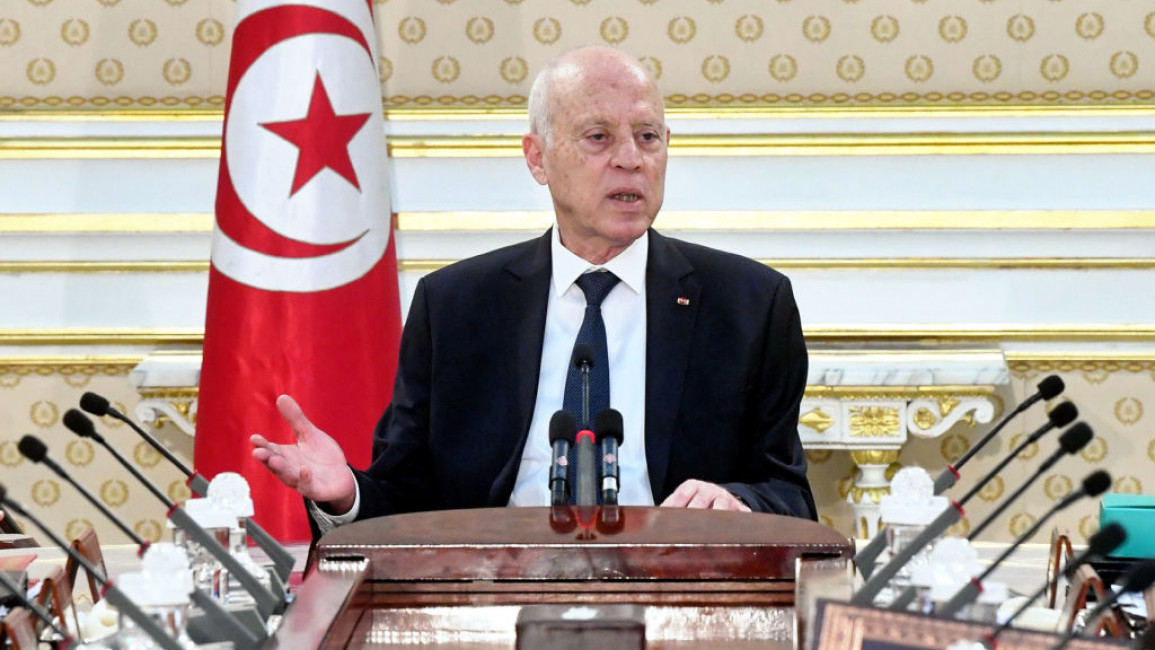'Help us by remaining silent': Tunisian official calls for ban Facebook to end 'fake news'
A Tunisian official has called on President Kais Saied to ban Facebook for an alleged 'fake news' campaign targeting the state's economy.
"I hope that the president will hear me and block Facebook. If Facebook does us this way. We do not need it," said Fakher Al-Fakhfakh, the governor of Sfax, on Wednesday.
On Wednesday, Al-Fakhfakh chaired a meeting of the Disaster Control Committee to address the ecological crisis gripping Tunisia's industrial hub of Sfax after A large fire erupted inside one of the city's garbage dumps.
The fire caused thick clouds of smoke and led to the closure of several schools and administrations in the city.
The stifling smoke prompted a nationwide social media campaign criticising the authorities' poor strategy to solve the city’s long-standing garbage issue.
However, the governor of the city argued that the social media campaign spread fake news to diminish the state's economy and bring shame to the Tunisian state.
والي صفاقس يناشد رئيس الجمهورية قطع الفايسبوك عن تونس و الاكتفاء بالاذاعات المحلية
— 🇹🇳 نبيل التونسي (@Nabilettounsi) November 16, 2022
و ينعت مخالفيه في الراي بكلاب السوق
😂🤣 pic.twitter.com/Y2ZanAv9nM
"Rumours circulating on social media only serve to inflame tensions and add fuel to the fire. (...) A little smoke. (...) We must bear it. One must say, 'Praise be to God,' and help us by remaining silent," said Fakher Al-Fakhfakh, Sfax's governor.
The governor said that he would ask President Kais Saied, to "block Facebook" to prevent the spread of rumours and false information, calling his opponents "stray dogs".
"It is not reasonable for the Dutch ambassador to see scandals, it is not reasonable, frankly," he added.
An attaché of the Dutch embassy has reportedly questioned the governor on the ecological catastrophe in the city.
The governor's statements caused quite a stir on social media with Tunisian activists warning of the authoritarian tone Saied's officials use while addressing the nation's problems.
Sfax la catastrophe humanitaire et économique, c'est vraiment malheureux pic.twitter.com/xCxFrCO59W
— Samoud Nadou 44 (@Nadou44) November 15, 2022
"I was angry and when I called to block Facebook, I wanted to talk about pages that do not respect the conventions of communication and virtual friendship and that spread disinformation and spread rumours," the governor commented on the scandal Thursday in an interview with local Radio Mosaique FM.
Meanwhile, he suggested the creation of a "Tunisian Facebook, based on charters in which it is forbidden to spread rumours."
Authorities have ordered an investigation into the reasons behind the ongoing fire in the trash dump. Sfax's governor claims that 'criminals' are behind the incident
Tunisia, which is home to 12 million people, has repeatedly struggled with waste management problems.
According to a recent World Bank report, just 61 per cent of waste in the capital Tunis is collected and most ends up in open-air landfills.
Since Tunisia's 2011 revolution, authorities have tried to crack down on illegal waste dumps but they have limited means to enforce rules.
Divisions among cabinet ministries have also sparked rows between the government and local officials, especially over who should collect toxic waste from places such as hospitals.
In 2020, the North African nation was hit by a scandal involving hundreds of containers of waste shipped from Italy.
They were declared to be carrying plastic for industrial recycling but were instead filled with mixed, putrid household waste, which is barred from import under Tunisian law.
In the meantime, several organisations and civil society activists are holding a "sit-in of anger" in front of the municipality of Sfax to protest against the garbage disaster.
احتجاجا على الأزمة البيئية... #صفاقس تنتفض ضد الوالي#بيئة pic.twitter.com/QQPPnLVcjH
— Tunigate - بوابة تونس (@Tunigate) November 17, 2022



